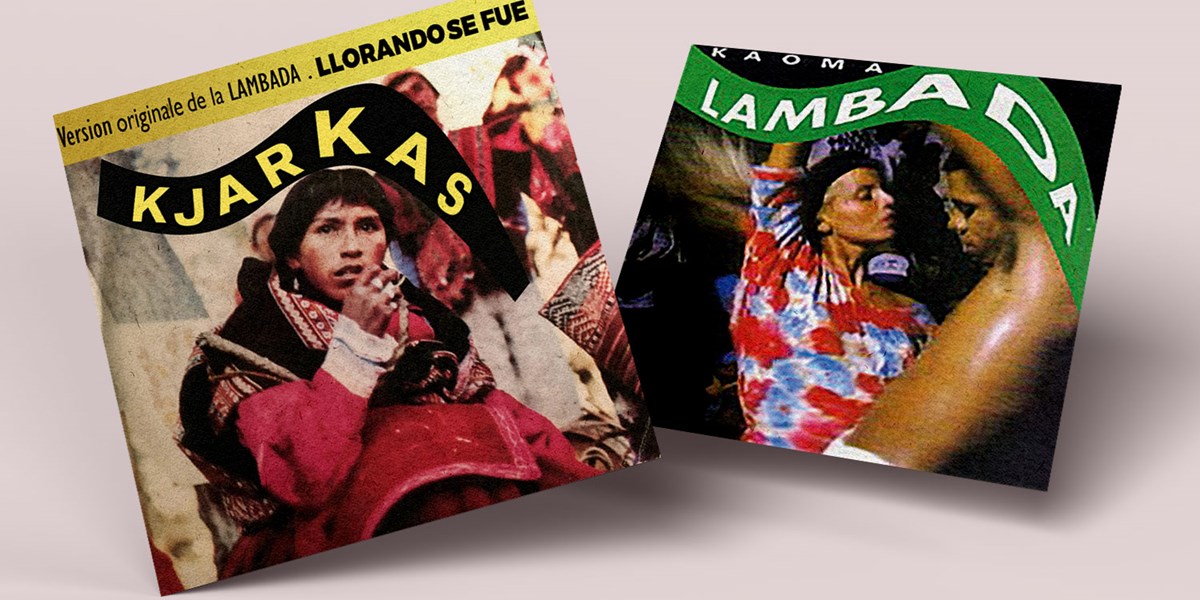Thursday, April 10, 2025
Stolen melodies, global hits: the bittersweet legacy of Los Kjarkas’ ‘Llorando Se Fue’
Los Kjarkas look back on a song that conquered the world as ‘Lambada’, despite modest expectations. “I have no idea what its charm was”, hears Charis McGowan

When the song ‘Lambada’ by Franco-Brazilian band Kaoma hit the airwaves in 1989, no one could have predicted the massive success it would achieve – least of all the original composers, Bolivian folk group Los Kjarkas. The song reached #4 in the UK and topped the charts in several European countries, including France, Spain and the Netherlands.
Formed in 1965 in Cochabamba, Los Kjarkas were stunned to hear the melody of their 1982 song ‘Llorando Se Fue’ transformed into a summer hit – used without their permission or crediting as original composers. ‘Lambada’ took over the airwaves across Europe, Asia and the Americas, far surpassing the popularity of its source material. The Andean saya of Los Kjarkas’ original was replaced by the Brazilian lambada rhythm – while the core hypnotic melody drove its worldwide success.
“After ‘Lambada’, everyone wanted to say that they had also participated in creating the song,” says the group’s Gonzalo Hermosa. “That wasn’t the case. It was just a very beautiful melody that my brother Ulises played to tune his panpipes.” Tuning from the smallest tube to the largest, Ulises toyed between the sounds and the melody appeared. “Ulises did the music, and I did the words, the poem, the story”, confides Gonzalo.
“Before it became ‘Lambada’, many others were already performing it, and with great success”, says Gonzalo, listing an upbeat cumbia version by Peru’s Sexteto Internacional in 1984 – which swapped pan flutes for accordion – alongside Argentine Juan Ramón’s cover in 1985 and Colombian Pastor López’ in 1986. That same year, Brazilian singer Márcia Ferreira recorded a Portuguese version, ‘Chorando Se Foi’, which served as the lyrical inspiration for ‘Lambada’.
The success of ‘Lambada’ ensured the song’s translation into different languages and genres outside of the Latin music world; Akemi Ishii released a Japanese ‘Lambada’ in 1989, followed by a Korean version by Kim Wan-sun. Los Kjarkas were popular in Japan, largely owing to Ishii’s cover, and they eventually incorporated a Japanese verse into ‘Llorando Se Fue’ in 1990.
“We like [Ishii’s] version here in Bolivia! We also sang it in Japan because they love listening to the song in another language,” says Gonzalo. Today, the band’s line-up includes Japanese instrumentalist Makoto Shishido. “Strangely, Japanese culture is very similar to Andean culture. Maybe that’s because, as if they were some kind of siblings, people migrate; perhaps the Japanese must have migrated from Latin America. They even have many words in Japanese that mean the same thing and have the same phonetics.”
Los Kjarkas authorised 42 different language versions after the success of ‘Lambada’ – Gonzalo hasn’t heard them all. “Our work has not only been about authorship, but also about expanding and sharing Andean music”, he stresses.
Kaoma’s lack of acknowledgement of the song’s Bolivian roots was the deepest pain point for the band during the success of ‘Lambada’, and after a two-year legal battle, a French court ruled that ‘Lambada’ was a copyright violation. In 1990, amid the legal battle, Ulises told El País: “The scandal has had both negative and positive aspects. We’re popular because of a plagiarism problem, but at the expense of the ‘Lambada’, paths have been opened for Bolivian music.”
Ulises passed away from cancer in 1993. For Gonzalo, who, along with Gastón Guardia, is one of the remaining original band members, the legal battle over ‘Lambada’ left a lasting scepticism regarding the music industry. “Many people started looking through their archives and found certain bits of melodies that they could fit into this case to claim ownership”, remembers Gonzalo. “Some Bolivians claimed that the song was a very old Bolivian tune and tried to insert a piece of melody to support their case, but they were not very successful.” Alongside these claims, there is also a slew of misinformation about the song’s origins – that it was based on a heartbreak that the singer, Gastón, experienced. Gonzalo says this is not true: “The enchantment of this song is that melancholic, sad feeling…something from the heart, a deeply sad event that cannot be forgotten.” It was not based on reality: “It was all a product of my imagination. Many have claimed they inspired it, but that’s not true. It came solely from my mind.”
Gonzalo still doesn’t quite understand why the song captivated so many worldwide. “I believe we have much more beautiful songs, but this is the one the world has chosen… The truth is [it’s] had a lot of luck. I have no idea what its charm or magic was.”
+ Los Kjarkas play London’s Electric Brixton on April 19 and 20

